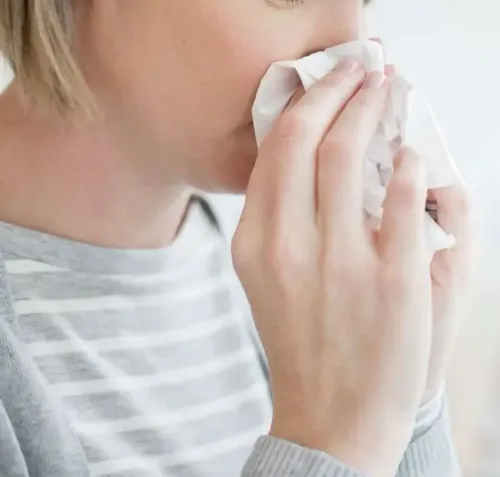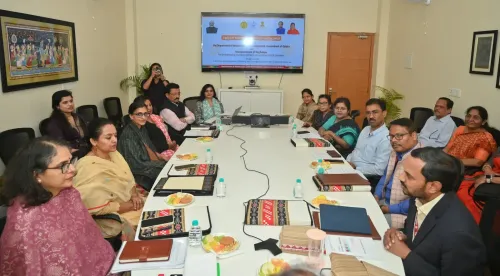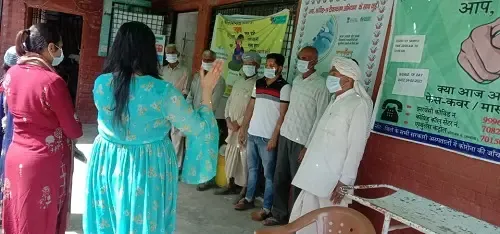What Should You Know About the Recent Amoebic Encephalitis Advisory from TN Health Department?

Synopsis
Key Takeaways
- Avoid stagnant water sources like ponds and puddles.
- Symptoms of amoebic encephalitis include severe headache and fever.
- The disease is not contagious.
- Stay vigilant during the monsoon season.
- Access to anti-rabies vaccines is improving in rural areas.
Chennai, Aug 28 (NationPress) In light of the recent reports of amoebic encephalitis in the neighboring state of Kerala, the Tamil Nadu government has urged the public to steer clear of unsafe water sources such as ponds, puddles, and poorly-maintained swimming pools. Health Minister Ma Subramanian emphasized that the rare yet lethal infection, Primary Amoebic Meningo-Encephalitis (PAM), is triggered by the amoeba Naegleria fowleri, which flourishes in stagnant and contaminated water.
"When tainted water enters through the nose, the amoeba can travel to the brain, leading to meningitis and potentially fatal outcomes. However, the disease is non-contagious, so there is no cause for alarm," the minister informed the media.
Kerala has reported 18 cases, with patients currently receiving treatment. The common symptoms of this infection include severe headache, fever, vomiting, neck pain, seizures, and confusion.
Subramanian urged residents of Tamil Nadu to remain vigilant and refrain from swimming in unsafe water bodies.
Additionally, the Minister updated the media on the health status of veteran Communist leader R. Nallakannu, who is currently being treated at the Rajiv Gandhi Government General Hospital (RGGGH).
The 101-year-old was admitted on August 24 due to breathing difficulties. Medical examinations revealed food particles trapped in his respiratory tract, which were subsequently removed through bronchoscopy. He is currently on respiratory support and antibiotics.
While his condition initially showed signs of improvement, Nallakannu experienced renewed breathing issues on August 27 and is under close observation.
"A dedicated medical team, consisting of specialists from RGGGH and private hospitals, is monitoring him around the clock. We request the public and political leaders to refrain from visiting him directly, as he requires rest and intensive care," Subramanian stated.
Addressing other public health issues, the Minister mentioned that the state is implementing measures to control stray dog bites through sterilization programs and the establishment of shelters. He also noted that anti-rabies vaccines and anti-snake venom are now available at primary health centers to ensure accessibility for rural communities.
Reiterating the government's commitment to public health, Subramanian encouraged citizens to heed advisories and stay alert, especially during the monsoon season when waterborne diseases are more prevalent.










